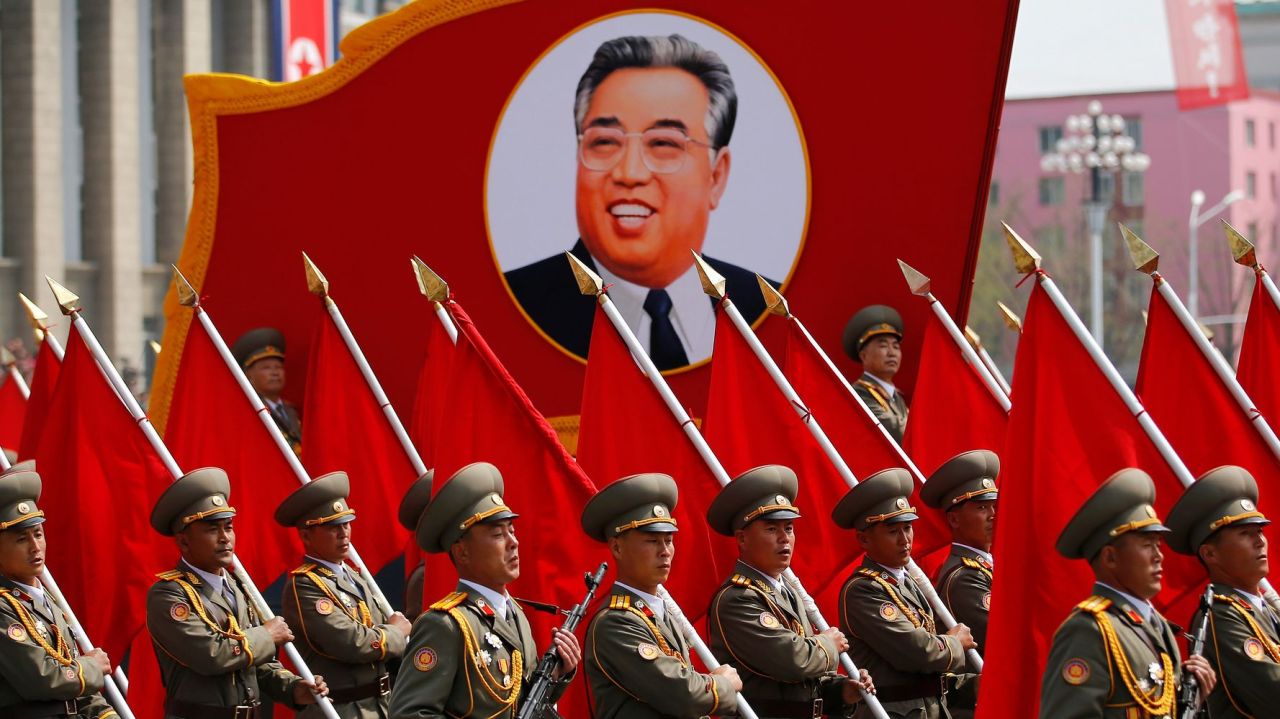North Korea accuses South Korea of suppressing freedom of speech
Memoirs of North’s founder, Kim Il-sung, reignite controversy over South’s out-of-date National Security Act
By Lee Ji-yoonPublished : May 4, 2021 - 18:11

Fresh controversy is building in South Korea over the memoirs of North Korea’s founder, Kim Il-sung, published almost 30 years ago.
A local publishing firm republished the eight-volume memoirs, titled “With the Century,” last month for the first time here. But sales were suspended almost immediately after civic groups filed a court injunction to stop them, citing the National Security Act.
The books chronicle Kim’s life through his childhood to his time in the anti-Japan movement during the 1910-45 Japanese colonial rule of the Korean Peninsula. Much of the book is devoted to depicting Kim as a heroic guerilla fighter resisting Japanese atrocities.
The term “Arduous March,” now widely known as a period of mass starvation in North Korea in the mid-1990s, originally referred to Kim’s 100-day struggles starting in December 1938, when he and his unit suffered from extreme hunger and intense cold.
Since they were first published in 1992 on the occasion of Kim’s 80th birthday, the books have been used as a key propaganda tool to justify and glorify the dictatorship of the Kim regime, including that of current leader Kim Jong-un, the founder’s grandson.
All smartphones used in the North feature the digital version of the books as a preinstalled app.
South Korea’s National Security Act prohibits the possession or publication of materials glorifying the North Korean regime, both of which are considered acts “benefiting the enemy.” Any attempt to bring materials written in North Korea to the South must be approved by the government. Approval is granted only in limited cases, such as using them for research purposes.
“Because the books have already been published in several languages, I thought there would be no problems with the publication,” publisher Kim Seung-kyun told reporters, saying he had won state approval nine years earlier to supply the books to local research institutions.
“I’ll cooperate with the police or the Unification Ministry if necessary,” he added.
The memoirs have been translated into several foreign languages. The Kindle edition of the English version, titled “Kim Il-Sung: Reminiscences With the Century,” is currently available for $10.99 on Amazon.
The recent fuss has also reignited decades-old debates over the National Security Act, which has faced criticism for limiting not just people’s ideological freedom but also North Korean studies -- a field considered crucial for resolving the complicated geopolitical issues surrounding the division of the two Koreas.
“It’s an ironic situation,” said a student at the University of North Korean Studies in Seoul on condition of anonymity. “Compared to scholars in other countries, we in Korea have the least access to the already limited North Korean materials available here.”
Even at the schools, many North Korean materials are inaccessible. Students are required to read the materials at the library or to sign a statement acknowledging that they can face charges if they use them for purposes other than research.
In a recent meeting with grassroots party leaders, Kim Jong-un stressed the spirit of the “Arduous March,” urging all-out efforts to reinvigorate the economy. Some experts said the remark might indicate that North Korea was taking a more conservative policy direction amid the prolonged COVID-19 pandemic, rather than focusing on reforms.
“Without understanding the origin of the expression ‘Arduous March,’ Kim’s latest remark could have been interpreted differently. That’s why we need more access to North Korean materials to better understand the reclusive regime,” the student said.
On Monday, North Korea -- which has one of the worst human rights records in the world -- mocked the ban on sales of Kim Il-sung’s memoirs in the South, saying, “Freedom of speech and publication is the very basic rights people should have.”
By Lee Ji-yoon (jylee@heraldcorp.com)






![[KH Explains] How should Korea adjust its trade defenses against Chinese EVs?](http://res.heraldm.com/phpwas/restmb_idxmake.php?idx=644&simg=/content/image/2024/04/15/20240415050562_0.jpg&u=20240415144419)












![[Today’s K-pop] Stray Kids to return soon: report](http://res.heraldm.com/phpwas/restmb_idxmake.php?idx=642&simg=/content/image/2024/04/16/20240416050713_0.jpg&u=)